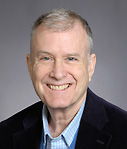Nature over nurture?
Nurture, culture and your education are each far more important to boosting intelligence than scientists previously thought, according to Richard Nisbett, the 2010 Henry Russel Lecturer.
 Nisbett, the Theodore M. Newcomb Distinguished University Professor of Psychology, tackles the topic of his 2009 book, “Intelligence and How to Get It,” a topic he’s been developing through years of research.
Nisbett, the Theodore M. Newcomb Distinguished University Professor of Psychology, tackles the topic of his 2009 book, “Intelligence and How to Get It,” a topic he’s been developing through years of research.
The lecture begins at 4 p.m. March 9 at Rackham Amphitheater. It is free and open to the public.
“We can take a student from a lower class area who is struggling academically and in a year get that kid above the national average,” Nisbett says. “There are many things you can do that are cost effective that can have an impact.”
Decades of failed education reforms attempting to narrow the gaps between urban and suburban school districts as well as efforts to try to bring U.S. math scores in line with those of Asian students have led to arguments that these gaps may be “hard-wired” but Nisbett says the experts have been wrong.
Nisbett says common sense widespread views about hard work paying off were always more accurate than the body of research, arguing that we inherit our intelligence, including the 1990s “Bell Curve” theory claiming that intelligence predetermined the likelihood of wealth, job performance and socioeconomic status.
“A number of researchers argued we were really not educate-able, that we were sort of hard-wired in the way we thought about things but I’ve found in 15 minutes, I can teach something and forever change the way people think about something,” he says.
His research has found several cost-effective ways to boost academic performance including:
• Asking students to write essays describing their most important values.
• Getting students to focus on achievable goals, setting them, writing them out and how they believe they can be achieved.
• Repeatedly telling them the “Bell Curve” theory, the belief that “we’re no good at math because no one in our family was,” simply is not true.
The program also recognizes two promising young faculty researchers: Patricia Wittkopp, assistant professor of molecular, cellular and developmental biology, and Cindy Lustig assistant professor of psychology.
Nisbett served as an assistant professor of psychology at Yale University before joining the U-M faculty in 1971.
He is recognized as one of the most creative and productive social psychologists in the history of that discipline. He has made landmark contributions to the study of several topics including obesity; how humans understand themselves and the social world; people’s use of induction and logic; and culture’s influence on violence, reasoning, perception and intelligence.
His many awards include the American Psychological Association’s 2004 William James Book Award for “The Geography of Thought.”
Both the Russel Award and the Henry Russel Lectureship were established in 1925 with a bequest from Henry Russel of Detroit who received three degrees from U-M.

